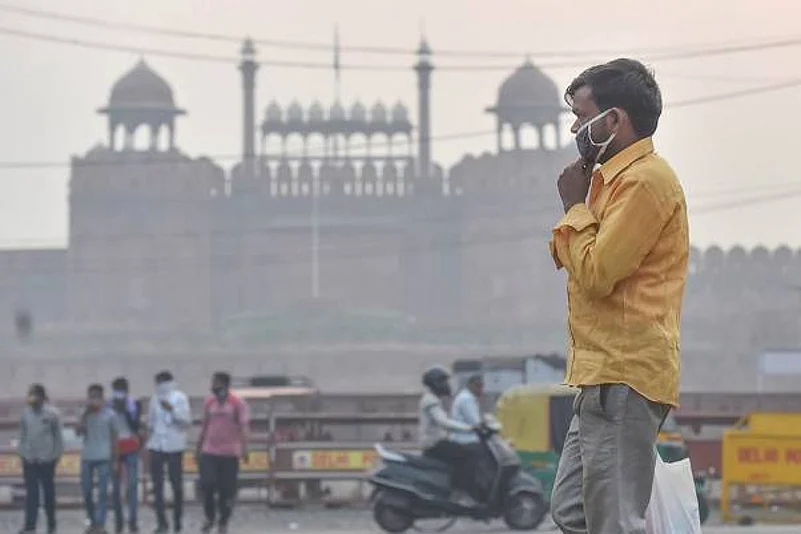Pollution levels dipped in the national capital on Wednesday morning, primarily due to increased wind speed, but the relief could be short-lived.
At 10 am, the city recorded an air quality index (AQI) of 281, which falls in the “poor” category. Prior to this, the air quality remained “very poor” for five days on the trot.
The 24-hour average AQI was 312 on Tuesday, 353 on Monday, 349 on Sunday, 345 on Saturday and 366 on Friday.
An AQI between 0and 50 is considered 'good', 51 and 100 'satisfactory', 101 and 200 'moderate',201 and 300 'poor', 301 and 400 'very poor', and 401 and 500 'severe'.
A senior scientist at the India Meteorological Department said favourable wind speed helped in dispersion of pollutants on Tuesday evening.
However, the wind speed has reduced again which will allow pollutants to accumulate, he said.
The air quality may slip into the “very poor” category by Thursday, the scientist said.
According to the Ministry of Earth Sciences' air quality monitor, SAFAR, the share of stubble burning in Delhi's PM2.5 concentration rose to 23 percent on Tuesday, the maximum this season so far.
It was 16 percent on Monday, 19 percent on Sunday and 9 percent on Saturday.
The wind direction and wind speed were favourable for the transport of pollutants from farm fires in Punjab, Haryana and neighbouring regions on Tuesday.
The number of farm fires in neighbouring states was 1,943 on Monday – the highest so far this season, SAFAR said.
According to the India Meteorological Department, the predominant wind direction was westerly-northwesterly and the maximum wind speed was 4 kilometers per hour. The minimum temperature was recorded at 13.8 degrees Celsius.
Calm winds and low temperatures trap pollutants close to the ground, while favourable wind speed helps in their dispersion.
The air quality index (AQI) is likely to improve slightly on Wednesday but pollution levels will rise again on Thursday, SAFAR said.
The central government's Air Quality Early Warning System for Delhi said the national capital's air quality was likely to remain “very poor” till October 31.
The air quality warning system said the ventilation index – a product of mixing depth and average wind speed – is likely to be around 4,000 metre square per second on Wednesday – unfavourable for dispersion of pollutants.
Mixing depth is the vertical height in which pollutants are suspended in the air. It reduces on cold days with calm wind speed.
A ventilation index lower than 6,000 sqm/second, with the average wind speed less than 10 kmph, is unfavourable for dispersal of pollutants.


























